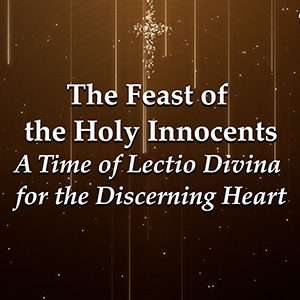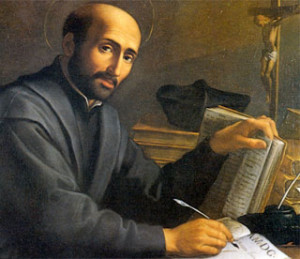Podcast: Play in new window | Download (Duration: 22:47 — 15.8MB) | Embed
Subscribe: Apple Podcasts | Spotify | Amazon Music | Android | Pandora | iHeartRadio | JioSaavn | Podchaser | Gaana | Podcast Index | Email | TuneIn | Deezer | Anghami | RSS | More

Episode 6 – Insights into Advanced Directives and Catholic Ethical Perspectives
– The Final Journey with Dr. Stephen Doran, M.D.
In this episode, Dr. Stephen Doran and Kris McGregor highlight the crucial significance of advanced directives, in particular the living will and durable power of attorney for healthcare. Emphasizing the need for understanding these documents, Dr. Doran underscores their role in guiding healthcare decisions when communication from the patient is impossible.
He cautions against misinterpretations in the practical aspects of advanced directives, urging alignment with genuine desires through open communication with the designated power of attorney. The podcast stresses the importance of the durable power of attorney for healthcare, designating a crucial point person for medical decisions and facilitating family support.
Dr. Doran also advises caution on physician orders for life-sustaining treatment, encouraging viewers to view advanced directives as expressions of the human inclination to control destiny while embracing mystery and grace in the face of death.
For more episodes in the series, visit The Final Journey: Insights from a Catholic Doctor and Neurosurgeon w/ Dr. Stephen Doran M.D. – Discerning Hearts Podcasts.
Stephen Doran, M.D., a board-certified neurosurgeon with over twenty-five years of experience, is an ordained permanent deacon and serves as the bioethicist for the Archdiocese of Omaha. His writings in bioethics, neurosurgery, and gene therapy for brain disorders have been widely published in national media outlets, academic journals, and neurosurgery textbooks. He is married with five sons. He co-founded Seeking Truth Catholic Bible Study with his wife, Sharon.
Discerning Hearts reflection questions for this episode:
- Understanding and Embracing Mortality: How does creating an advanced directive challenge us to confront and accept our own mortality from a Catholic perspective? Reflect on how this acceptance can lead to a deeper spiritual understanding and preparation for death.
- The Role of Faith in Decision-Making: In light of the conversation about advanced directives and living wills, how can your faith inform your decisions about end-of-life care? Consider the Catholic Church’s teachings on the dignity of human life and the sanctity of death.
- Choosing a Durable Power of Attorney for Healthcare: Why is it important to select someone who shares your faith and values as your durable power of attorney for healthcare? Reflect on the significance of having someone who respects and understands your beliefs making decisions on your behalf.
- The Limits of Human Control and Trust in God: How does the desire to control every aspect of our end-of-life care reflect our human nature? From a Catholic perspective, how can we balance this desire with trust in God’s plan and the mystery of His grace?
- Ethical and Moral Considerations: Discuss the ethical and moral considerations that should guide the creation of an advanced directive or living will. How can these documents be aligned with Catholic teaching on end-of-life care?
- Communication and Community in End-of-Life Decisions: How important is open communication with family members and loved ones when preparing for end-of-life decisions? Reflect on the role of community, family, and the church in supporting these conversations.
- Euthanasia and Assisted Suicide: In light of Dr. Doran’s mention of euthanasia and assisted suicide as expressions of controlling one’s destiny, discuss the Catholic Church’s stance on these issues. How does this stance challenge contemporary societal views on death and dying?
- The Spiritual Journey of Dying Well: Reflect on the concept of dying well from a Catholic viewpoint. How can preparing for death through advanced directives and thoughtful consideration of end-of-life care be a part of a spiritual journey toward eternal life?
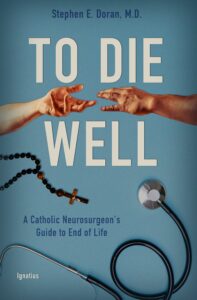
You can find the book here
From the book description:
Dr. Stephen Doran draws from his vast experience as a neurosurgeon, a bioethicist, and a permanent deacon to present the Catholic perspective on the art of dying well. The spiritual and moral issues related to death and the process of dying can be challenging and complicated. To Die Well provides a detailed yet readily understandable guide to these topics.
Each chapter begins with a story from Dr. Doran’s personal or professional life that not only provides context for the topic at hand but also gently draws the reader toward the personal realities of dying. The first part focuses on the moral issues that surround death and dying, including end-of-life medical decisions. The second part is devoted to the Catholic spiritual understanding of dying and the rites that accompany the death of a Catholic.
To Die Well will help readers contemplate, pray about, and prepare for the end of their earthly lives.

 “On the fifth day of Christmas, my true love gave to me: Five Golden Rings …” pointing to the first five books of the Old Testament, also known as the Torah or the Pentateuch: Genesis, Exodus, Leviticus, Numbers, Deuteronomy. This is the history of humanity’s fall from grace and God’s response to make those people a light unto the world.
“On the fifth day of Christmas, my true love gave to me: Five Golden Rings …” pointing to the first five books of the Old Testament, also known as the Torah or the Pentateuch: Genesis, Exodus, Leviticus, Numbers, Deuteronomy. This is the history of humanity’s fall from grace and God’s response to make those people a light unto the world.

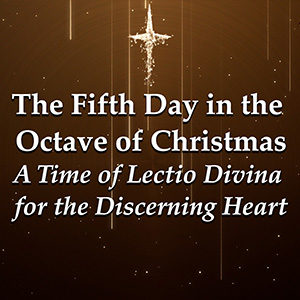

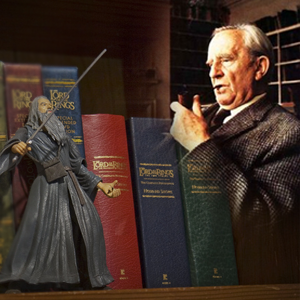
 “On the fourth day of Christmas, my true love gave to me: Four Calling Birds …”symbolizing the four Gospels: Matthew, Mark, Luke and John which proclaim the good news of God’s reconciliation of the world to Himself through Jesus Christ.
“On the fourth day of Christmas, my true love gave to me: Four Calling Birds …”symbolizing the four Gospels: Matthew, Mark, Luke and John which proclaim the good news of God’s reconciliation of the world to Himself through Jesus Christ.